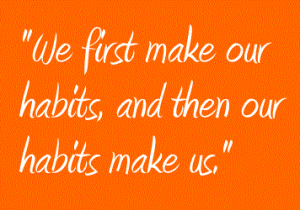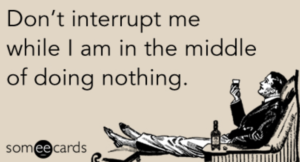by Todd Muffley | Feb 5, 2016 | Marketing
“Pick yourself. Don’t wait for someone to pick you. The shift is that it doesn’t matter if you own a company. You can make an impact if you want to.” Seth Godin, from his book Linchpin
 Hey, business owner, yeah you. Got a second? I just need to talk… just between us, doesn’t having employees suck? Babysitting a bunch of teenagers is was it feels like. They sit, staring at the clock, waiting for 5pm to come. Needing to take yet another personal day… for what? Annual raises and employee reviews, I could go on and on… what a pain in the ass. Ya see, that’s why I wanted to talk to you. I’m done. That’s right, done. I am going to let you in on a little secret. At a company meeting in the not to distant future, I am going to fire all my employees. Yep, I’m going to stand up and let them all go at the same time… going to rip the band-aid off with one pull. Goodbye, so long, go riddance.
Hey, business owner, yeah you. Got a second? I just need to talk… just between us, doesn’t having employees suck? Babysitting a bunch of teenagers is was it feels like. They sit, staring at the clock, waiting for 5pm to come. Needing to take yet another personal day… for what? Annual raises and employee reviews, I could go on and on… what a pain in the ass. Ya see, that’s why I wanted to talk to you. I’m done. That’s right, done. I am going to let you in on a little secret. At a company meeting in the not to distant future, I am going to fire all my employees. Yep, I’m going to stand up and let them all go at the same time… going to rip the band-aid off with one pull. Goodbye, so long, go riddance.
You say I can’t have a business without them? You ask how will all the work get done? Great questions. After I fire all my employees, I’m going to hire any back who want to come to work with me as a stakeholder. Yes, I said stakeholder. You may say it is all semantics, but I say it isn’t. I have decided I want to only work with stakeholders from now on. What is a stakeholder you ask? Let me tell you:
First stakeholders are adults. They don’t need someone to babysit them and instruct them each step of their workday. They ask questions like “Why?” Most importantly, they don’t expect the company or other adults to take care of them.
Secondly they are owners. While they are not the same as stockholders, as they don’t physically own any of the company, they do at a minimum, own their work and the results it creates. They will own profit sharing, and may even go on to own stock or a piece of the company someday. They own their tasks, process and jobs, and they own how they work within the system.
Thirdly, stakeholders require leadership, not adult supervision. Stakeholders don’t need management. They need someone to give them a vision, the tools and training they need and then point them in the right direction.
There are many more characteristics of what a stakeholder is, but you get the picture, right? Did I come up with all this? No, I wish I was that smart. But it has been at my core as a business owner, and the culture we created has attracted mostly stakeholders to Fat Atom. Want to get excited about firing your employees and hiring stakeholders? Read, “Why Employees Are Always A Bad Idea” by Blakeman. If you let it, this book will change your business for the better.
by Todd Muffley | Jan 5, 2016 | Marketing
 While at a conference the other day, the speaker, CJ McClanahan, was discussing habits. We all have them, some good, some bad and some we don’t even know we have. It was a good talk, so I thought I would share my notes… hope they make sense to you.
While at a conference the other day, the speaker, CJ McClanahan, was discussing habits. We all have them, some good, some bad and some we don’t even know we have. It was a good talk, so I thought I would share my notes… hope they make sense to you.
1- Begin with the end in mind, the VERY end. Make decisions based on that and that alone. What do you want people to say about you at your funeral? Are your actions everyday leading up to that?
2 – Prioritize. Have you read “The One Thing” by Keller? If everything is important, then nothing is. There are five levels of commitment… did you know that? Level 1 – NO, Level 2 – Want to, Level 3 – Try (when you say this, you are saying “no”), Level 4 – I’m totally committed, unless something else comes up, Level 5 – 100% all in.
3. Take 100% responsibility. Don’t blame others… for anything, even if it is their fault. Don’t blame your staff, the economy or your “situation.”
4. Live in the moment. Spend no more than 4% of your time living in the past, 11% of your time living in the future. For you math majors, that leaves 85% of your time living in the NOW.
5. Constantly improve. Remember that nothing stays the same, it either gets better or worse. What are you doing on a daily basis go improve? What are you reading? Who are you meeting with?
6. Behave. If you wait until you feel in the mood, you will never do it. Successful people behave when they don’t feel like doing it. Boom goes the dynamite.
7. Exceed expectations. In business, you should set expectations and not allow your clients to set them. If you don’t set expectations, apologize profusely. Expectations and trust are built a little bit each day, set and exceed them.
8. Measure everything. Simply, you cannot improve what you don’t measure… you just can’t.
9. Re-think your thoughts. The average person has, drum roll, 30,000 thoughts a day. Put a rubber band on your wrist and when you begin to have negative thoughts, based on false beliefs, snap yourself (warning, this could be awkward).
10. Lastly, move on. You are going to make a mistake… maybe even two. Don’t dwell on them, there is NO value in dwelling. When you make a mistake, reflect on why/how it was made, learn from it, then move along… there will be more made.
by Todd Muffley | Jan 24, 0202 | Marketing
 Probably the hardest thing for an entrepreneur to do is nothing. Yea, some people will have to read that again. Others won’t believe it and say, “Who can not do nothing?”
Probably the hardest thing for an entrepreneur to do is nothing. Yea, some people will have to read that again. Others won’t believe it and say, “Who can not do nothing?”
After I sold Fat Atom in March of 2017, I was at a low. Again, a paradox I know. After working tirelessly since September of 1999, 18 years of 60+ hours weeks, countless headaches, employee issues, close to financial ruin not once, but twice and the ups and downs of getting, keeping and losing clients…and all of a sudden I thought had no meaning.
If you haven’t been in that situation before, let me describe it like this. It’s like you are a race car driver driving at 230 mph and you lock of the brakes and your car stops. You get out of the car and hand someone the keys. The next day you wake up, and you don’t have anything to drive. Sure you are still a race car driver, but without a car.
Back to my story.
So I get a check, they get a business to run. I wake up the day after the sale of my business and what do you think I do? I go to the office of course. I still own the building and still have an office there…seems logical right? Well that doesn’t last long. Employees still came to me with questions. What should we do about this client? Where are we at with that prospect? Why aren’t the new owners doing it the way you did it? I could tell very quickly I needed to not be close to the business….but it’s all I have known. Hence the problem.
So what transpires next? We decide to sell our house, move to NC, buy a much bigger house, sell our little boat, buy a much bigger boat and start 2 new businesses all within the first 6 months after selling our business. Damn it to hell if I could go back in time.
What advice would I give myself?
Easy. BE STILL.
Take a vacation. Relax. Focus on doing nothing. Clear your mind. Dream.
BUT DON’T ACT.
Selling a business is a lot like divorce. It is a major life changing event. You wouldn’t go out and buy a sports car, get a new girlfriend and buy a timeshare the day after the papers are signed…or at least you shouldn’t. And you shouldn’t do anything after you sell your business.
You need time to reflect.
I try to always look forward and live a life without regrets. I wish someone would have come along side me at the crucial time and hit me with a 2×4 over the head….saying now do nothing…you earned it.
 Hey, business owner, yeah you. Got a second? I just need to talk… just between us, doesn’t having employees suck? Babysitting a bunch of teenagers is was it feels like. They sit, staring at the clock, waiting for 5pm to come. Needing to take yet another personal day… for what? Annual raises and employee reviews, I could go on and on… what a pain in the ass. Ya see, that’s why I wanted to talk to you. I’m done. That’s right, done. I am going to let you in on a little secret. At a company meeting in the not to distant future, I am going to fire all my employees. Yep, I’m going to stand up and let them all go at the same time… going to rip the band-aid off with one pull. Goodbye, so long, go riddance.
Hey, business owner, yeah you. Got a second? I just need to talk… just between us, doesn’t having employees suck? Babysitting a bunch of teenagers is was it feels like. They sit, staring at the clock, waiting for 5pm to come. Needing to take yet another personal day… for what? Annual raises and employee reviews, I could go on and on… what a pain in the ass. Ya see, that’s why I wanted to talk to you. I’m done. That’s right, done. I am going to let you in on a little secret. At a company meeting in the not to distant future, I am going to fire all my employees. Yep, I’m going to stand up and let them all go at the same time… going to rip the band-aid off with one pull. Goodbye, so long, go riddance.
 While at a conference the other day, the speaker, CJ McClanahan, was discussing habits. We all have them, some good, some bad and some we don’t even know we have. It was a good talk, so I thought I would share my notes… hope they make sense to you.
While at a conference the other day, the speaker, CJ McClanahan, was discussing habits. We all have them, some good, some bad and some we don’t even know we have. It was a good talk, so I thought I would share my notes… hope they make sense to you.
